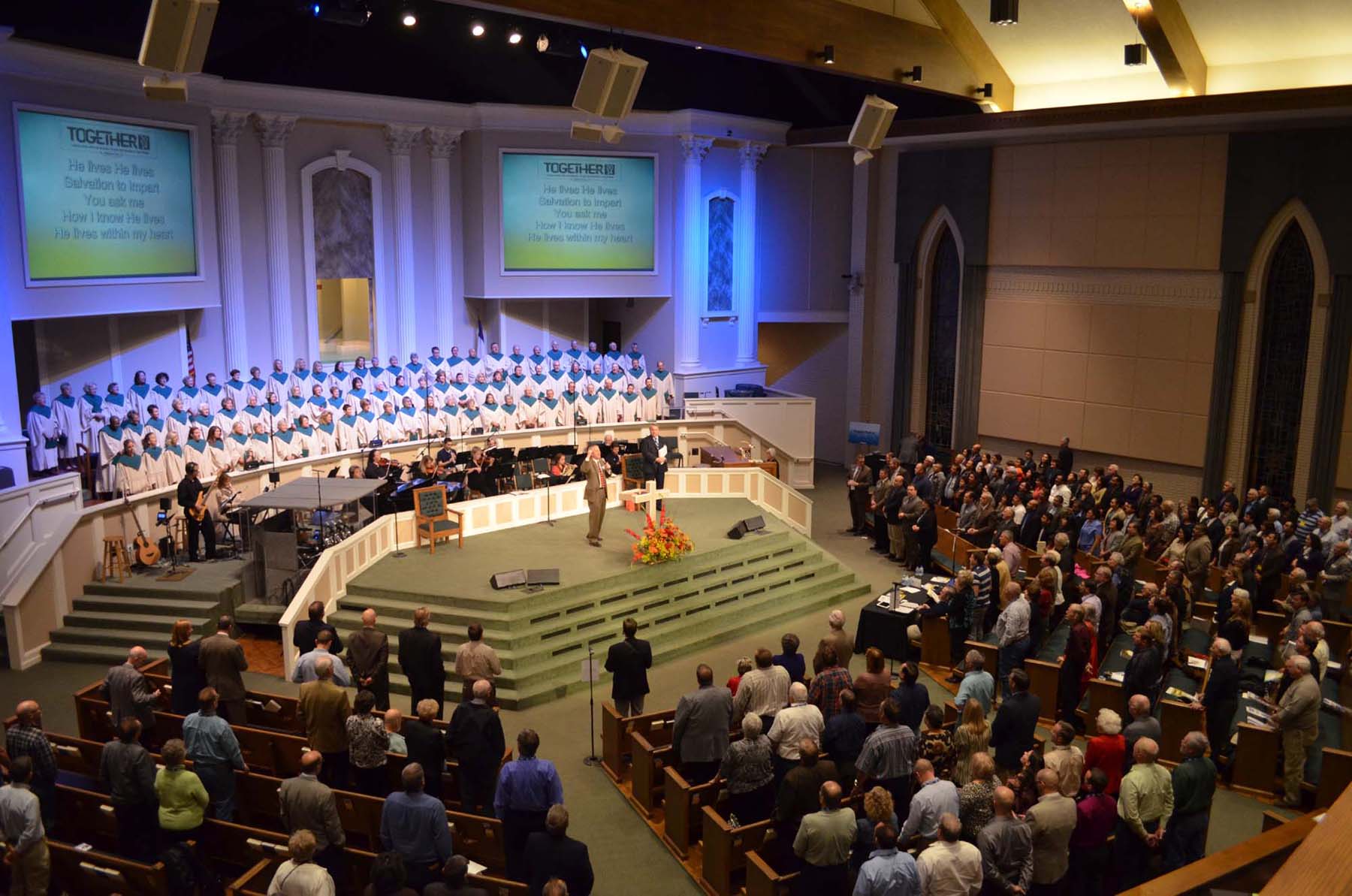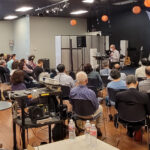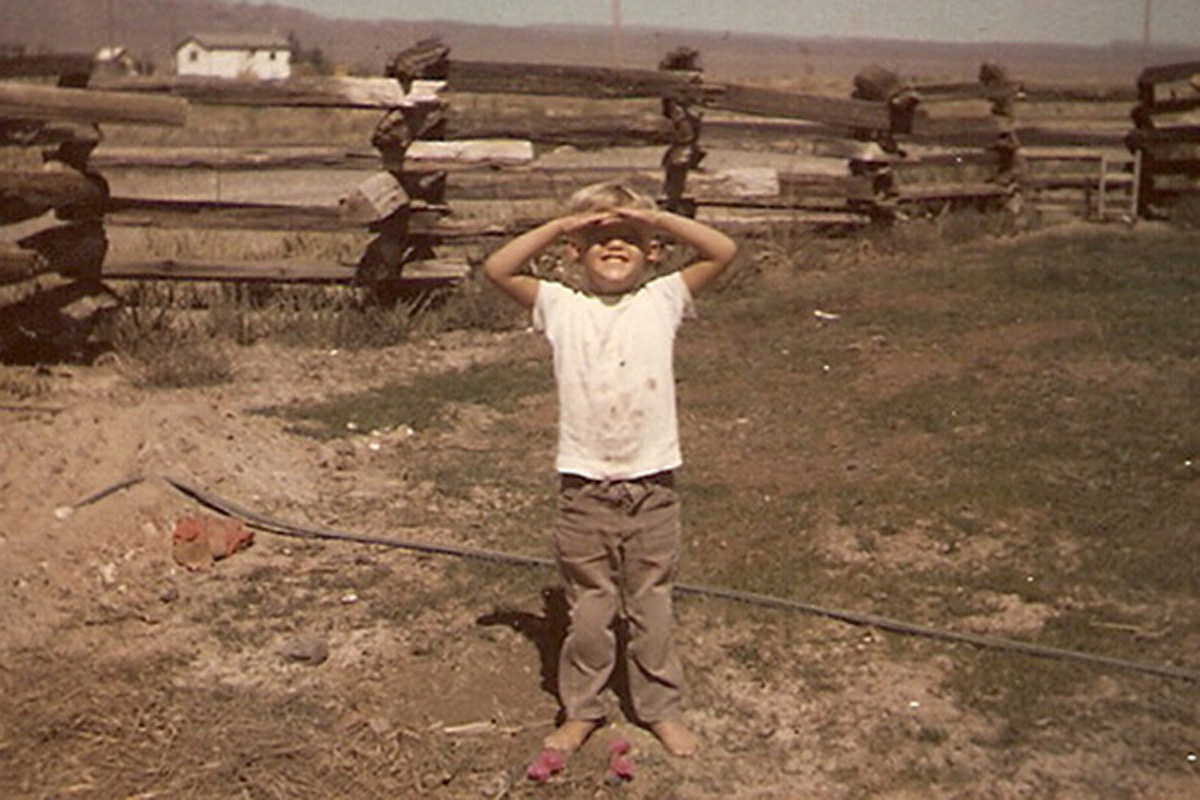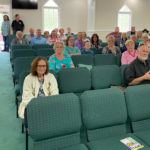
EDITOR’S NOTE: Paragraph four was corrected from an earlier version.
 NASHVILLE (BP) — Twenty-three state conventions have increased the portion of Cooperative Program receipts forwarded to Southern Baptist Convention missions and ministries in moving toward the goal of a 50/50 allocation between in-state and SBC causes, continuing an upward trend spanning several years.
NASHVILLE (BP) — Twenty-three state conventions have increased the portion of Cooperative Program receipts forwarded to Southern Baptist Convention missions and ministries in moving toward the goal of a 50/50 allocation between in-state and SBC causes, continuing an upward trend spanning several years.
At the forefront this year: Messengers in Iowa and Nevada adopted budgets projected to generate a combined $1.4 million in additional support for the International Mission Board, North American Mission Board, six seminaries, Ethics & Religious Liberty Commission and SBC operations by the Executive Committee.
With the Baptist Convention of Iowa to mark its 20th year in 2015, Executive Director Tim Lubinus justified increasing the SBC portion of the state’s Cooperative Program budget from 20 to 50 percent, stating, “A sign of this maturing of our convention isn’t measured by our independence of our national mission [entities], but by the strength of our support for them.”
The Nevada Baptist Convention, founded in 1979, raised its allotment to SBC causes from 35 to 50 percent of CP gifts from the state’s churches. A major reorganization begun four years ago envisioned a “lean and visionary” strategy to make Nevada Baptists “more self-sufficient financially and less dependent on ‘outside’ funding sources,” according to a plan approved by messengers.
Other state conventions whose actions will increase by more than 1 percent the percentage of their budgets sent beyond their borders include Arizona, Dakotas, Minnesota-Wisconsin, New England and South Carolina. Meanwhile, Alabama, Alaska, Arkansas, California, Indiana, Kansas-Nebraska, Mississippi, Missouri, Montana, North Carolina, Northwest, Penn-Jersey, Tennessee, West Virginia and Wyoming are increasing the SBC portion in amounts ranging from .02 to 1 percent.
Iowa and Nevada join the Southern Baptists of Texas Convention as the only state conventions that forward half or more of CP receipts from local churches to the SBC without a “shared ministries” calculation. The SBTS, formed in 1998 with a 50/50 division from the start, moved to allocating 55 percent of undesignated receipts to the SBC in 2008. The SBC of Virginia, while in the process of phasing out its shared ministries category, currently allocates 51 percent of the resulting balance for SBC ministries and promotion and 49 percent for Virginia ministries.
Joining the 24 other state conventions that do not designate any items as dually beneficial to the state and national convention, the Baptist General Convention of Oklahoma this fall removed the designation of shared ministries, a category which accounted for 13.21 percent of the BGCO budget last year.
Only 15 of the 42 state conventions classify any budget portion as shared ministries and nearly a third of those made reductions in the portion they consider shared, including New England (35.77 to 8 percent), New Mexico (22.97 to 2.52 percent), Wyoming (18.75 to 13.7 percent) and Alaska (11.28 to 9.21 percent).
Two state conventions — the Baptist General Convention of Texas and the Baptist General Association of Virginia — let churches customize what they label Cooperative Program giving. BGCT’s preferred giving plan retains 79 percent of undesignated receipts from affiliated churches for in-state use and 21 percent for one of three worldwide partners — the Southern Baptist Convention, the Cooperative Baptist Fellowship or BGCT Worldwide. Churches may customize further by specifying the portions for in-state and out-of-state allocations. BGAV has pre-set giving tracks that a church can customize to fund causes of the SBC and/or CBF.
While most state conventions are increasing the percentage of their budgets for missions and ministry around the world, only a fourth are projected to actually contribute more dollars to SBC causes in the coming year. The actual dollar of a state convention’s allocation fluctuates annually depending on how well cooperating churches in the state are able to fund their respective budgets. Helping offset that impact are churches that adopt the “1% Percent Challenge” to increase the Cooperative Program portion of their undesignated receipts through their state conventions.
Analysis of financial data is based on information supplied by Baptist Press and state convention reports with projections for 2015 calculated or in some cases estimated by SBC Executive Committee staff.
Each state convention elected officers to leadership for 2015. Those serving as president are:
ALABAMA — Travis Coleman Jr., pastor of First Baptist Church in Prattville.
ALASKA — Todd Burgess, pastor of First Baptist Church in Eagle River.
ARIZONA — Bret Burnett, pastor of Mountain View Baptist Church in Tucson.
ARKANSAS — Archie Mason, pastor of Central Baptist Church in Jonesboro.
CALIFORNIA — Randy Bennett, director of missions for Kern County Southern Baptist Association.
COLORADO — Michael Atherton, pastor of Cornerstone Church in Lone Tree.
DAKOTAS—Jeff Musgrave, pastor of First Baptist Church in Langdon, N.D.;
FLORIDA — James Peoples, pastor of Trinity Baptist Church in Keystone Heights.
GEORGIA — Don Hattaway, pastor of Tabernacle Baptist Church in Cartersville.
ILLINOIS — Odis Weaver, pastor of Friendship Baptist Church in Plainfield.
INDIANA — Darin Garton, pastor of Oak Creek Church in Mishawaka.
IOWA — Lloyd Eaken, pastor of Fairview Baptist Church in Anamosa.
KANSAS-NEBRASKA — Andy Addis, pastor of CrossPoint Church in Hutchinson, Kan.
KENTUCKY — Tom James, pastor of Eastwood Baptist Church in Bowling Green.
LOUISIANA — Steve Horn, pastor of First Baptist Church in Lafayette.
MARYLAND/DELAWARE — William Warren, pastor of Allen Memorial Baptist Church in Salisbury, Md.
MICHIGAN — Chuck Turner, director of missions at Central and Lendale Baptist Associations.
MINNESOTA-WISCONSIN — Rick Schulze, pastor of Graceway Fellowship in Green Bay, Wis.
MISSISSIPPI — Larry Young, pastor of Spangle Banner Missionary Baptist Church in Pace.
MISSOURI — Neil Franks, pastor of First Baptist Church in Branson.
MONTANA — Bruce Speer, pastor of Cross Point Community Church in Missoula.
NEVADA — Greg Fields, pastor of Nellis Baptist Church in Las Vegas.
NEW ENGLAND — Neal Davidson, pastor of Hope Chapel in Sterling, Mass.
NEW MEXICO — Jonathan Richard, pastor of First Baptist Church in Estancia.
NEW YORK — Scott Gillette, pastor of Amherst Baptist Church in Amherst.
NORTH CAROLINA — Timmy Blair, pastor of Piney Grove Chapel Baptist Church in Angier.
NORTHWEST — Dale Jenkins, pastor of Airways Heights Baptist Church in Airways Heights, Wash.
OHIO — Mark Stinson, pastor of Trinity Baptist Church in Cambridge.
OKLAHOMA — Hance Dilbeck, pastor of Quail Springs Baptist Church in Oklahoma City.
PENN/SOUTH JERSEY — Brian King, pastor of Ezekiel Baptist Church in Philadelphia.
TENNESSEE — Michael C. Ellis, pastor of Impact Baptist Church in Memphis.
TEXAS (BGCT) — Kathy Hillman, a member of Columbus Avenue Baptist Church in Waco and director of special collections at Baylor University.
TEXAS (SBTC) — Jimmy Pritchard, pastor of First Baptist Church in Forney.
UTAH-IDAHO — Jim Panagopolos, pastor of First Baptist church in Roy, Utah.
VIRGINIA (BGAV) — Ann Brown, a member of First Baptist Church in Gretna.
VIRGINIA (SBCV) — Grant Ethridge, pastor of Liberty Baptist Church in Hampton.
WEST VIRGINIA — John Freeman, pastor of Calvary Baptist Church in Chapmanville.
WYOMING — Mike Cooper, pastor of College Heights Baptist Church in Casper.
















